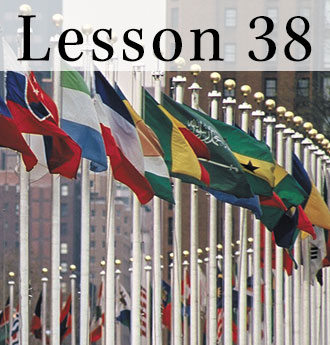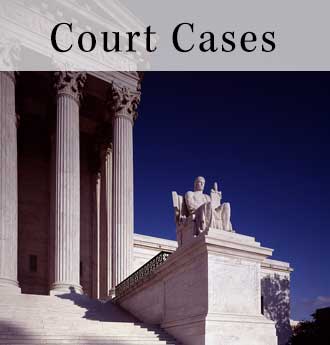Lesson 38: What Are the Challenges of the Participation of the United States in World Affairs?
globalization The process of increasing interconnectedness and closer integration of the world's markets and businesses as a result of advances in transportation, communications, and information technologies. Such advances promote the flow of goods and services, ideas, capital, and people across borders.
international law Rules, usually the result of treaties but also from custom, that regulate how countries are to behave toward one another. International law differs from municipal, or domestic law, in that, in many cases, there is no enforcement mechanism and no universal authoritative interpretation. The rulings of international tribunals are binding on states that have agreed to adhere to tribunal findings, but such rulings are not binding on others.
isolationism The foreign policy of a nation that wishes to be inward–looking rather than involved with other countries. Historically, some cases of isolationism have combined a noninterventionist military policy with a protectionist economic policy.
letter of marque and reprisal A grant of authority from Congress to private citizens, not the president, to expressly authorize seizure and forfeiture of goods by such citizens in the context of undeclared hostilities with another country or countries.Without such authorization, citizens seizing such goods would be pirates in the eyes of international law.
multinational corporation An enterprise that operates in at least two countries.
treaty An agreement under international law between states or international organizations.
United Nations An international organization created in 1945 to maintain peace through the collective security of its members.








